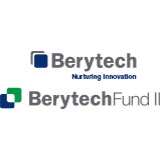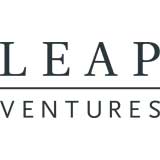As we’ve witnessed the rise in Lebanon’s startup ecosystem, we have witnessed the Lebanese venture capital market grow at an unprecedented pace in 2015. Attributed to Banque du Liban’s initiative Circular 331 , which provides incentives to commercial banks to make equity investments in startups or venture capital funds, we have seen the VC scene flourish with several new players.
Below is a brief overview of the main VCs in Lebanon:

Berytech
Berytech is the oldest firm in Lebanon to provide support to startups.Ever since its inception, Berytech has been driven by the will to create positive impactful initiatives.
Berytech was established in 2001 as an initiative from Saint Joseph University to provide an environment that startups and SMEs can be created and developed in through incubation, counseling, networking, funding, and company hosting. It has since grown through the years to become an ecosystem of 3 incubators, 3 finds, 1 accelerator, and coworking support spaces.
Since its inception, Berytech has created over 90 startups, invested in over $6M in 15 ventures, and supported over 3000 entrepreneurs. Since BDL Circular 331, Berytech launched the Berytech Fund II, a $50 million Beirut based venture capital fund to invest in SMEs with high growth potential. The United States Agency for International Development (USAID) and Berytech also announced in April 2015 the official launch of “Insure & Match Capital” (IM Capital), a new $15M Investment Fund under MENA Investment Initiative.
Speakers at BDL Accelerate 2015: Maroun N. Chammas, Chairman and CEO of Berytech, Dr. Nicolas Rouhana, Executive Director, Paul Chucrallah, Managing Director of Berytech fund2.

Leap Ventures
Leap Ventures was founded in 2014 as a venture capital firm specializing in investments in startups. The firm is based in Beirut and is also located in Dubai. It invests in the MENA region with a focus in Lebanon. It considers investments between $3 million and $7 million and up to $12 million through partnerships with other firms. Leap Ventures closed off its first round at $71 million and is expected a second closing that would most likely increase the fund size to $80 million.
Leap Venture has 4 founding partners with over 70 years of combined experience in founding and exiting companies. The partners are Henri Asseily, Hala Fadel, Herve Cuvilliez, and Noor Sweid, each with a wealth of experience as investors and entrepreneurs. The 4 have founded and scaled 8 companies leading to over $ 2 billion in exits, and have invested in a total of 47 startups to date.

Middle East Venture Partners (MEVP)
Founded in 2010, MEVP is the region’s leading independent venture capital firm with over 25 investments since inception. Conducting business across three offices in Beirut, Dubai, and Silicon Valley, MEVP’s assets under management have reached in excess of $100 million.
MEVP manages 4 funds:
– MEVF I: Launched in 2010, Fund size $10M, sector: ICT companies with a focus on consumer services in MENA region, ticket size: $200k to $1M.
– BBEF: Launched in 2013, Fund size $ 7.3M, sector: ICT companies with a focus on retail and F&B, ticket size range from $200K to $1M.
– IMPACT: Launched in 2014, Fund size $70M, sector ICT companies and creative industries in Lebanon, ticket size range $1M to $5M.
– MEVF II: Launch in 2015, Fund size: $15M first out of $30M, focus on ICT companies in MENA, ticket size range: $300k to $3M
MEVP has 3 managing partners; Walid Hanna, who has led more than 30 investments and has been active in venture capital and in new venture development for over 15 years; Walid Mansour, also has more than 15 years of experience in venture capital, strategy and corporate finance; and Ihsan Jawad, based in Dubai, an internet entrepreneur who had founded Zawya.com and co-founded HoneyBee Tech Ventures.




